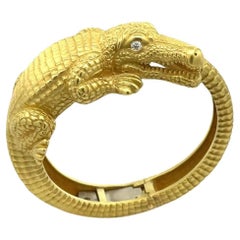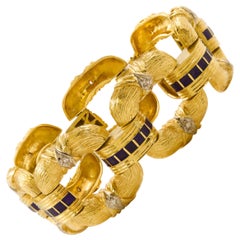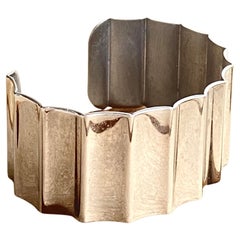Barry Kieselstein-Cord Furniture
In the mid-1950s, there were children who read comic books and built forts and then there was Barry Kieselstein-Cord, a now-critically acclaimed New York City–born jewelry designer whose early hobbies included carving totem poles.
In fact, Kieselstein-Cord was proficient at carving by the time he was eight years old. His hobby fueled what would become deep interests in Native American art and in the natural world around him. Kieselstein-Cord made more carvings, and eventually began to explore metalwork and craft jewelry in his teens. Today he creates rings, necklaces and other jewelry and accessories so divine that they are as much wearable sculptures as they are personal adornment.
Kieselstein-Cord studied at Parsons School of Design and the American Craft Institute. He has long been enamored of illustration, architecture, photography and other disciplines, and even as a world-renowned jeweler, Kieselstein-Cord has always considered his true identity as a sculptor. ”I don’t make jewelry; I do sculptures for the body,” he has said.
Kieselstein-Cord designed his first sterling silver collection in 1972, and a year later, the collection was presented for sale at Georg Jensen’s Manhattan flagship store. Kieselstein-Cord’s partnership with the legendary Danish silverware firm meant that his work would reach an international audience. It was also around this time that the designer began to work with fashion titans Perry Ellis and Calvin Klein.
By the late 1970s, Kieselstein-Cord had begun to integrate gold and gemstones into his work. During this decade he designed much-lauded belt buckles, and some of his most sought-after collections — including Crocodile, Pompeii and Borgia — followed a decade later. On today’s secondary market, those 1980s-era designs are enjoying a resurgence. Names like Henry Dunay and Kieselstein-Cord are being reappraised as icons of contemporary design.
Tom Hanks, Oprah Winfrey, Sir Elton John, Jack Nicholson, Barack Obama and Giorgio Armani are all known collectors of Kieselstein-Cord’s work. His designs have found their way into the Louvre in Paris and the Metropolitan Museum of Art in New York City.
On 1stDibs find a collection of vintage Barry Kieselstein-Cord belts, earrings, bracelets, handbags and other jewelry and accessories.
1980s American Art Deco Vintage Barry Kieselstein-Cord Furniture
Gold Leaf
20th Century Greek Barry Kieselstein-Cord Furniture
Gold, Enamel
Late 20th Century Modern Barry Kieselstein-Cord Furniture
Sterling Silver
Mid-20th Century Barry Kieselstein-Cord Furniture
Gold
Late 20th Century Italian Modern Barry Kieselstein-Cord Furniture
Bronze, Gilt Metal
19th Century African Tribal Antique Barry Kieselstein-Cord Furniture
Metal, Bronze
Early 20th Century Swiss Art Deco Barry Kieselstein-Cord Furniture
Gold
Late 20th Century American Mid-Century Modern Barry Kieselstein-Cord Furniture
Sterling Silver
19th Century African Tribal Antique Barry Kieselstein-Cord Furniture
Metal, Bronze
20th Century Unknown Modern Barry Kieselstein-Cord Furniture
Gold
20th Century Mid-Century Modern Barry Kieselstein-Cord Furniture
Gold
Mid-20th Century American Barry Kieselstein-Cord Furniture
Gold
20th Century Barry Kieselstein-Cord Furniture
Gold


